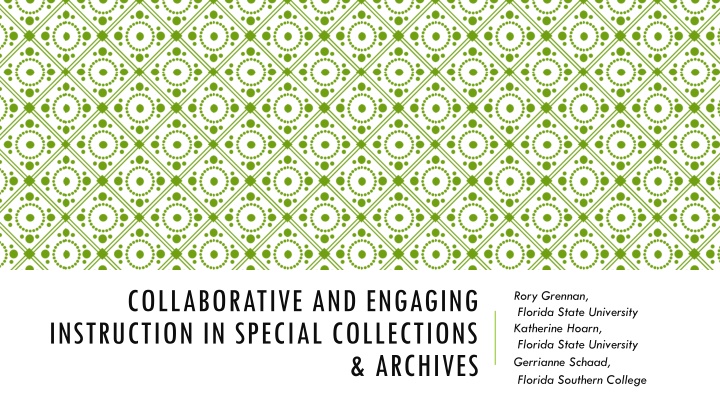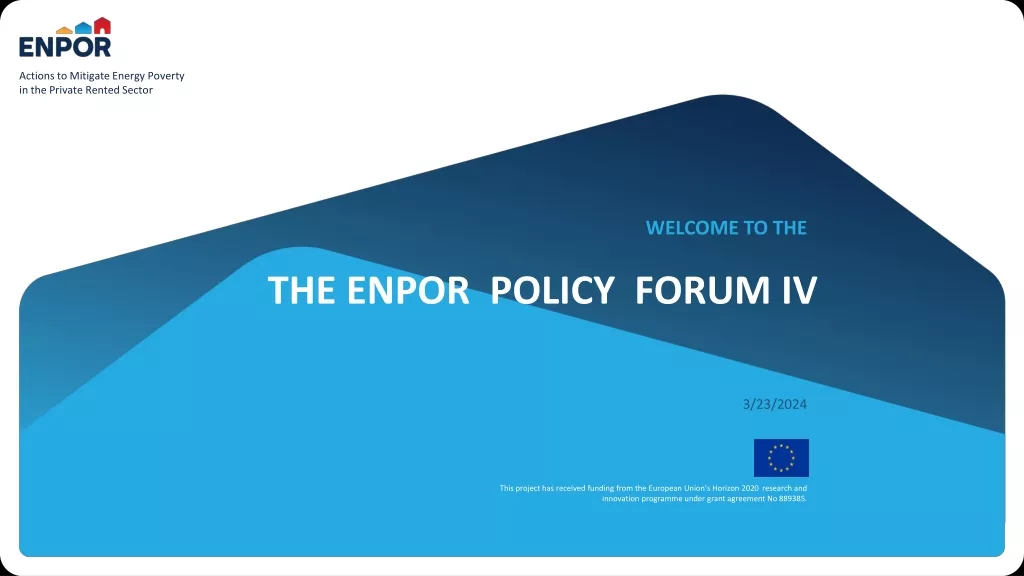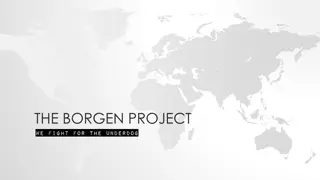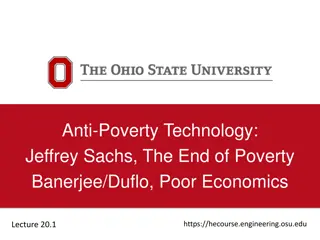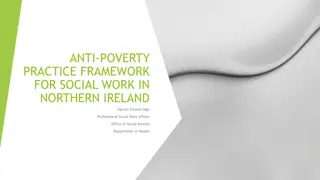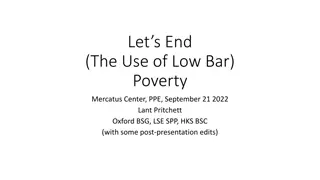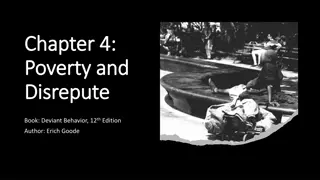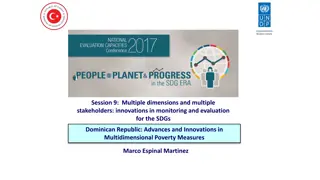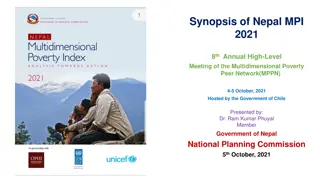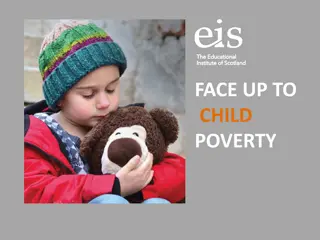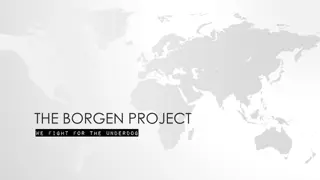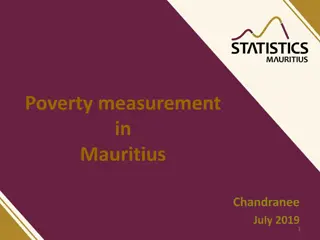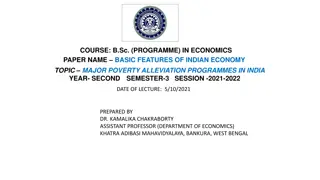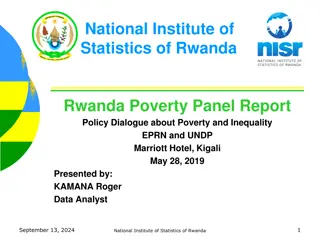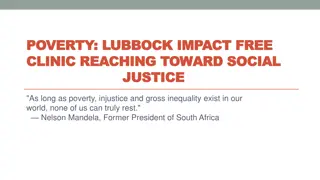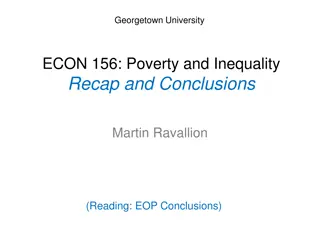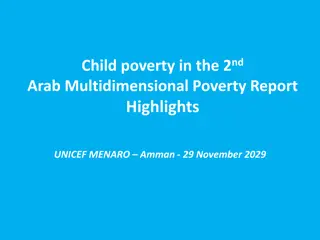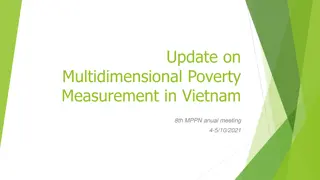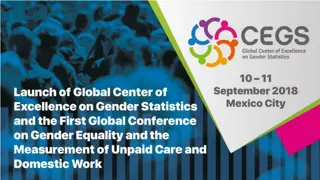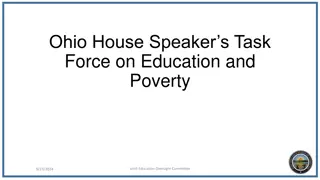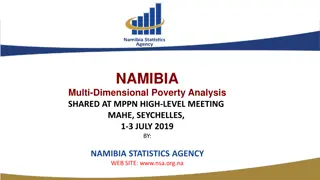Poverty and Development Perspectives
The old man questions his poverty while the development worker cites historical, educational, and environmental factors. The man's simple response emphasizes the lack of money. The narrative touches on enterprise development, agricultural value chains, and institutional capacity building, wrapping up with a nod to enlightened self-interest and various companies contributing to Uganda's economy.
Download Presentation

Please find below an Image/Link to download the presentation.
The content on the website is provided AS IS for your information and personal use only. It may not be sold, licensed, or shared on other websites without obtaining consent from the author.If you encounter any issues during the download, it is possible that the publisher has removed the file from their server.
You are allowed to download the files provided on this website for personal or commercial use, subject to the condition that they are used lawfully. All files are the property of their respective owners.
The content on the website is provided AS IS for your information and personal use only. It may not be sold, licensed, or shared on other websites without obtaining consent from the author.
E N D
Presentation Transcript
COLLABORATIVE AND ENGAGING INSTRUCTION IN SPECIAL COLLECTIONS Rory Grennan, Florida State University Katherine Hoarn, Florida State University Gerrianne Schaad, Florida Southern College & ARCHIVES
HOW ARE WE INSTIGATING COLLABORATIONS? Leveraging existing contacts Utilizing outreach opportunities Negotiating other requests Cold calling Word of mouth
WHO ARE OUR COLLABORATORS? Subject Librarians (Liasons) & Special Collections Colleagues Help make contact with departmental instructors Co-teaching Combine bodies of expertise Provide holistic view of available resources
WHO ARE OUR COLLABORATORS? Class Instructors Session planning objectives and outcomes content/activities selecting materials Co-teaching Combine subject knowledge & collection knowledge Ensuing activities Student research Assigned materials
WHAT ARE WE BRINGING TO COLLABORATIONS? Collections Knowledge Archival Literacy Negotiation Skills Flexibility Patience Gratitude
WHAT ARE WE TAKING AWAY FROM COLLABORATIONS? New Friends Finer Knowledge of Our Materials More and Better Informed Researchers
STUDENT ENGAGEMENT Moving beyond show-and-tell
TWO (IMPERFECT) APPROACHES Show-and-Tell Laissez-Faire - I tell you everything - Look but don t touch (unless there s enough time at the end) - Here s some cool stuff to look at - I ll be around if you have questions
LESSONS LEARNED - Balance presenting the necessary information with allowing time for students to handle the materials and discover things on their own - Don t pull too many things at once - Break large classes into smaller groups - Work with the class instructor to provide an in-class activity that will help achieve your learning objectives - Don t give away answers encourage the students to use what they already know - Bring it altogether at the end with a group discussion
IN-CLASS LEARNING ACTIVITIES Scavenger Hunts & Identification Worksheets - Provide the students with pointed questions to guide them beyond "Wow, this is cool!" Tell me about this object - Put the students in groups and give them each an item from a manuscript collection with minimal descriptive information - Have the students research the history of the item using finding aids, the digital library, and other online resources - Questions might include: How was this made? Is it print or manuscript? Who was it made for? - Gather everyone at the end of class and have students share the story of their object
ACTIVE LEARNING WITH ARCHIVES STAFF
